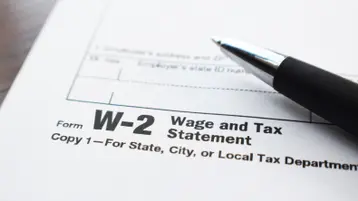
Table of contents
- 1.Direct deposit means money goes straight to a bank account
- 2.Federal rules give employers some flexibility
- 3.State laws matter more than many employers expect
- 4.Some states do allow employers to require direct deposit
- 5.There are ways to stay compliant and offer direct deposit
- 6.Some workers do not have a bank account
- 7.The final answer depends on where you do business
Direct deposit is a fast, low-cost way to send wages. It eliminates paper checks, reduces bank visits, and helps workers get paid on time. Because of these benefits—and as part of broader payroll trends influencing modern payroll practices—many employers want all employees to use it. But before making it a requirement, it’s important to understand the legal limits. While federal law allows direct deposit in general, state laws often set stricter rules. In some states, employees must agree before enrollment. In others, employers must offer more than one payment method. To avoid penalties, businesses must follow both federal and state guidelines carefully.
Direct deposit means money goes straight to a bank account
With direct deposit, an employer sends an employee’s paycheck electronically to a checking or savings account. There is no need to print or mail anything. The money shows up on payday, usually in the morning. This method reduces delays, prevents lost checks, and cuts payroll costs. It also saves employees time by removing trips to the bank. Many workers find it more convenient once it is set up. Employers like it because it helps automate payroll and lowers the chance of errors. Direct deposit is just one part of managing payroll effectively—understanding the full payroll process can help reduce errors and keep your business compliant.
Federal rules give employers some flexibility
Federal law allows employers to offer direct deposit as a way to pay wages. However, it also protects the employee’s right to choose. An employer can suggest or encourage direct deposit, but cannot force an employee to use a specific bank. Under federal rules, workers must always have the option to choose where their money goes. If an employee prefers a different method, such as a paper check, the employer must allow it unless state law says otherwise. Learn more about direct deposit laws from the Wage and Hour Division of the U.S. Department of Labor.
State laws matter more than many employers expect
Each state sets its own rules for how wages can be paid. Some states do not allow employers to require direct deposit. For example, California and New York both require employee consent before using it. In these states, workers must have a clear choice and cannot be forced to enroll. Other states may allow mandatory direct deposit, but only under certain conditions, such as allowing the employee to pick their bank. Some states also require written consent before setting up direct deposit. Employers must check local laws before making any policy changes. You can see a full breakdown of payroll tax requirements by state from the National Conference of State Legislatures (NCSL) to ensure you're following the right process.
Some states do allow employers to require direct deposit
Several states let employers mandate direct deposit if certain rules are followed. These states include Alabama, Arizona, Indiana, Iowa, Kentucky, Maine, Massachusetts, Michigan, North Carolina, North Dakota, Oklahoma, South Carolina, South Dakota, Tennessee, Texas, Utah, Washington, and Wisconsin. In most of these states, employers must still allow employees to choose their own bank. Some states also require that employees not be charged fees to access their wages. Even when allowed, employers should clearly explain the policy and keep a record of employee communication.
There are ways to stay compliant and offer direct deposit
Employers can use direct deposit legally by following a few clear steps, many of which align with broader tasks found in a complete HR compliance checklist. First, check both federal and state laws for any restrictions. Then, create a written payroll policy that explains how direct deposit works and what options are available. If your state requires consent, collect it in writing before enrolling any employee. Keep a copy for your records. Make sure employees know they can ask questions or choose another method if allowed. Following these steps helps avoid legal issues and builds trust with your team. For more detail, SHRM provides an overview of direct deposit compliance by state for HR professionals.
Some workers do not have a bank account
Not every employee can or wants to use direct deposit. Some do not have a bank account. Others may prefer a different method for personal reasons. In these cases, employers must offer an alternative. A common option is a payroll card, which works like a debit card and allows employees to access their wages. Another option is a paper check. In many states, forcing an employee to use direct deposit when they have no bank account is not allowed. Respecting employee choices helps avoid problems and ensures fair treatment.
The final answer depends on where you do business
Direct deposit is a fast and easy way to pay employees, but it cannot always be required. Federal law allows it as an option, but many states have rules that limit its use. Some states require employee consent. Others require that alternatives be available. Before making direct deposit the only method of payment, check the laws in your state. This helps avoid legal issues and keeps your payroll process fair. When unsure, speak with an HR provider or legal advisor who understands employment law. You can also review common HR compliance concerns to stay informed and reduce risk across your business. If you work with freelancers or vendors, learn more about whether you can require independent contractors to use direct deposit.

Lauren Perales
Table of contents
- 1.Direct deposit means money goes straight to a bank account
- 2.Federal rules give employers some flexibility
- 3.State laws matter more than many employers expect
- 4.Some states do allow employers to require direct deposit
- 5.There are ways to stay compliant and offer direct deposit
- 6.Some workers do not have a bank account
- 7.The final answer depends on where you do business





